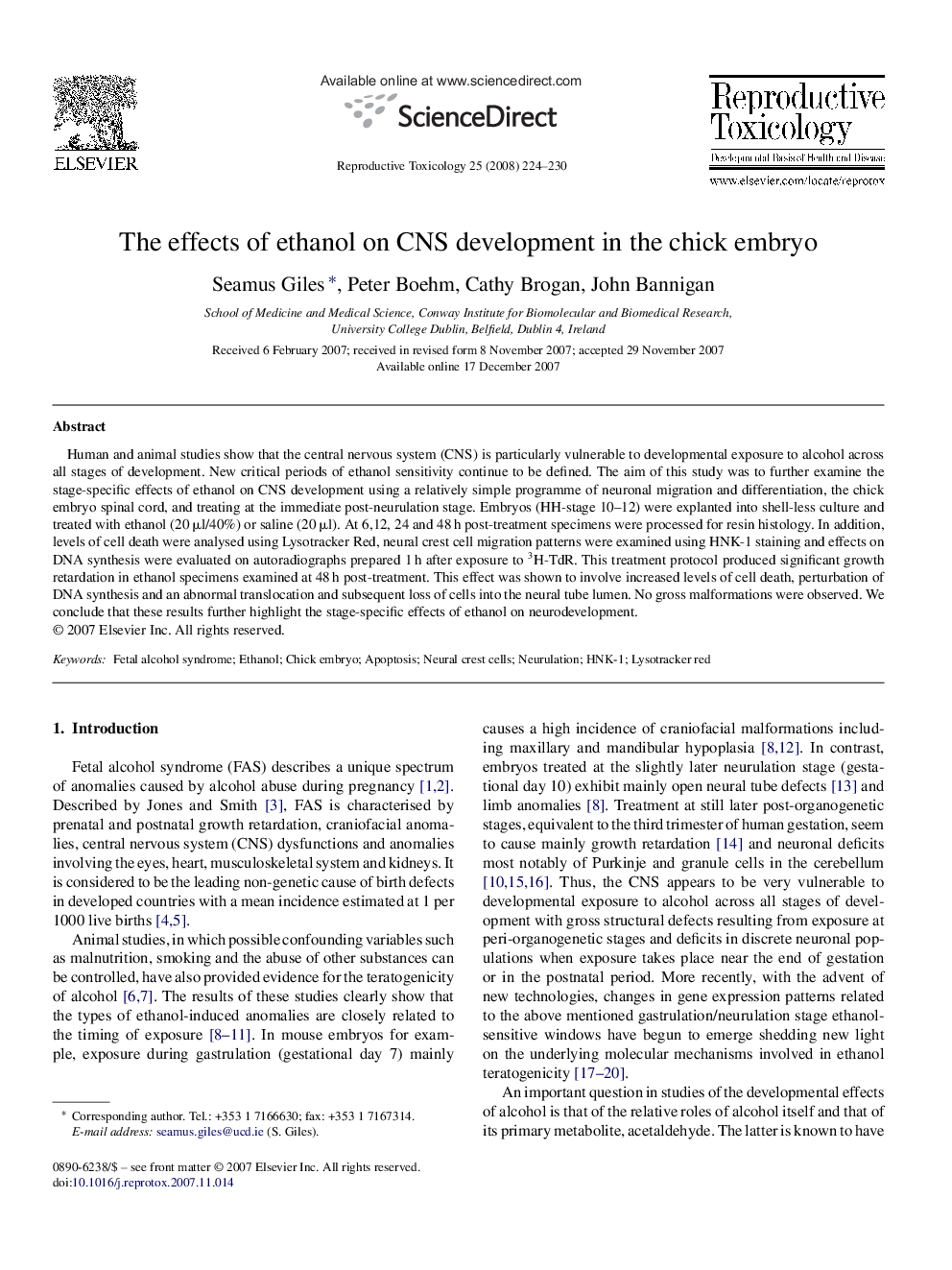| Article ID | Journal | Published Year | Pages | File Type |
|---|---|---|---|---|
| 2595147 | Reproductive Toxicology | 2008 | 7 Pages |
Human and animal studies show that the central nervous system (CNS) is particularly vulnerable to developmental exposure to alcohol across all stages of development. New critical periods of ethanol sensitivity continue to be defined. The aim of this study was to further examine the stage-specific effects of ethanol on CNS development using a relatively simple programme of neuronal migration and differentiation, the chick embryo spinal cord, and treating at the immediate post-neurulation stage. Embryos (HH-stage 10–12) were explanted into shell-less culture and treated with ethanol (20 μl/40%) or saline (20 μl). At 6,12, 24 and 48 h post-treatment specimens were processed for resin histology. In addition, levels of cell death were analysed using Lysotracker Red, neural crest cell migration patterns were examined using HNK-1 staining and effects on DNA synthesis were evaluated on autoradiographs prepared 1 h after exposure to 3H-TdR. This treatment protocol produced significant growth retardation in ethanol specimens examined at 48 h post-treatment. This effect was shown to involve increased levels of cell death, perturbation of DNA synthesis and an abnormal translocation and subsequent loss of cells into the neural tube lumen. No gross malformations were observed. We conclude that these results further highlight the stage-specific effects of ethanol on neurodevelopment.
